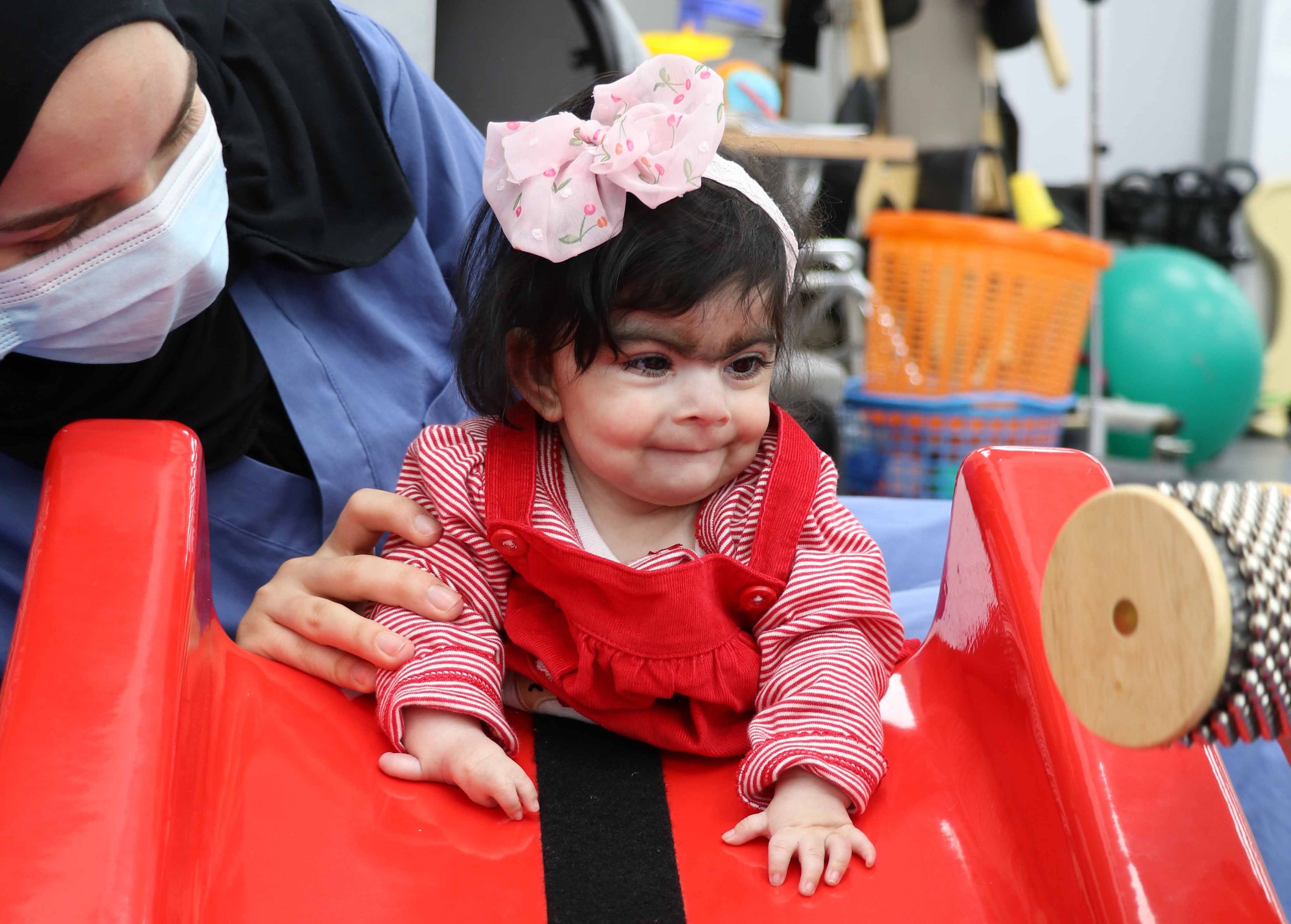Coping with Disability and Covid-19 in the West Bank
January 2021
We know by now that COVID-19 pandemic affects us all, but not in equal measure. For families living in previously difficult circumstances, such as those in West Bank, life is even harder than before. Of these families, those caring for children with disabilities are perhaps some of the worst affected.
Our friend and partner Ibrahim Faltas, General Director of the Jerusalem Princess Basma Centre, knows better than most what it means for the parents of disabled children to face the challenges of the pandemic. Here, he writes of their experience over the past year.
The COVID-19 pandemic has created several challenges for children with disabilities and their families across the West Bank, including East Jerusalem. Suddenly, parents of children with disabilities have to worry about keeping them safe from an invisible enemy that might harm them: the virus. Many of the children with disabilities that we serve have weak immune systems, and the pandemic creates serious concerns for these parents.
The guidance was to follow social distancing. But for many parents it was, and still is, challenging to apply these rules – particularly the two-meter distance rule when it comes to children who need physical assistance and therefore need to be in contact with their caregivers. Even things that we might take for granted, such as frequently washing our hands, can create challenges for those with a physical disability.
At the beginning of the pandemic in March 2020, services from all sectors, including the Jerusalem Princess Basma Centre (JPBC), were closed until the World Health Organization was able to issue clear guidance on how to work safely. It took almost two months for our services to open again, with heavy infection-control procedures needed, alongside substantial changes to infrastructure and costly personal protective equipment (PPE). Because we had to limit the number of children attending our inpatient residential program, we rolled out a newly developed virtual therapy service to reach those children who couldn’t get to us. In the initial phases of the pandemic, this allowed us to reach 52 children with disabilities and their parents.
The Princess Basma Centre has initiated a virtual therapy programme for those unable to reach the centre.
But the difficulties continue. For parents, especially across the West Bank, the main challenge is accessing day care services for their children. We work with some of these centers through our Outreach Program, funded by Embrace, and we are in constant contact with practitioners and parents so we might best asses their needs.
Before the pandemic, some centers that provided therapy, social services and childcare were already under-resourced and lacked the proper funding to provide consistent and quality services. This was mainly due to the financial crisis that the Palestinian Authority continues to face. In the wake of the pandemic, some of these centers faced further funding shortages that affected their service provision, such as a lack of necessary PPE and little guidance on how to continue to provide a service while protecting practitioners, parents and children. They have therefore seen the numbers of beneficiaries reduce drastically.
Parents are unable to reach local centers because they are worried about the safety of their children when using public transportation and whilst at the centers themselves. They are terrified that they might contract the virus. Added to this is a deteriorating economy and increasing unemployment that means many parents are now facing serious financial challenges.
Even before the pandemic, many families of children with disabilities were economically vulnerable, and now the situation is becoming even more challenging. The worry is that an increasing number of parents are not seeking therapy services and support for their children because they cannot afford to reach the day care centers in the field.
At JPBC, we continue to work in the field and to continue to reach the most vulnerable and support day care centers as much as possible, so that eventually and hopefully this pandemic will be behind us. We deeply value your thoughts and prayers for the children that we serve and for their families at this time.
Embrace continues to support this essential outreach work and rehabilitative therapies for families in the West Bank. In 2021 in addition to the regular outreach programme we will support the Jerusalem Princess Basma Centre to improve their IT systems in order to develop the virtual care model further, and we help them to meet the demands of providing adequate PPE for their staff to keep them safe.
Ibrahim Faltas is the General Director of the Jerusalem Princess Basma Centre
YOU MIGHT ALSO BE INTERESTED IN…
WHATTAN’S STORY: FIGHTING THE STIGMA OF DISABILITY
ACCESS ALL AREAS ALTERNATIVE GIFT
Help someone living with a disability to access specialist treatment.




